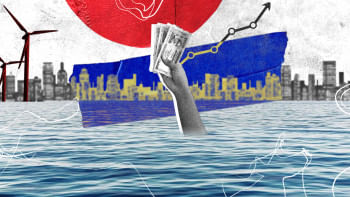Is our research supporting our policymaking?

I often wonder: how much of the large amount of research that we conduct at different universities and research centres in Bangladesh, on the country, is used to formulate and update our policies and development plans? To answer that, I have gone through six such plans. For simplicity, I divided all documents cited in these plans in three groups: i) research (e.g., journal articles, book chapters, academic books, and also research reports by non-government Bangladeshi research institutes); ii) government (documents prepared or published by government agencies); and iii) non-government (e.g., published by NGOs, think tanks, international organisations, donors, multilateral banks, and UN).
Formulated in 2018 by the General Economics Division (GED), the Bangladesh Delta Plan 2100 is the longest plan the country has ever produced. The Delta Plan (Volume 1: Strategy) contains a list of 237 unique references. Of these, 97 are research, 62 are government, and 78 are non-government documents. The Perspective Plan of Bangladesh 2020-2041 (PPB2041), on the other hand, has been guiding our journey to become a high-income country. This GED-prepared plan has a list of 22 references, of which two are research, and 10 each are government and non-government documents.
The Bangladesh Climate Fiscal Framework (CFF2020) is an updated version of the same prepared by the Finance Division back in 2014. Its reference list contains 13 government and 16 non-government documents, but lacking any original research. The updated Nationally Determined Contribution (NDC2021) doesn't have any reference list, although many government plans and projects are mentioned in the main text along with a few global climate change documents. Prepared by a team of consultants working for the UNDP, the National Adaptation Plan of Bangladesh 2023-2050 (NAP2050) has a list of 97 references, of which 26 are research, 46 are government, and 25 are non-government documents. Drafted around the same time, the Mujib Climate Prosperity Plan 2022-2041 (MCPP2041) is a revolutionary investment plan shifting the country's development philosophy from resilience to prosperity under the climate crisis. It has 46 unique references as footnotes: six research, six government and 34 non-government documents.
Overall, the research document category shows the lowest proportion (30 percent) and the non-government the highest (38 percent), followed by the government documents (32 percent). These numbers highlight three issues. First, team composition matters. The highest proportion of research (41 percent), for example, is seen in the Delta Plan indicating the drafting team's inclination towards evidence-guided long-term planning. The highest 74 percent of non-government documents was seen for the MCPP2041. This plan was initially drafted in 2021 by several diverse international agencies, which could be a reason for this percentage.
Second, knowledge mobilisation—when a piece of new knowledge is used for policy making—is not happening in Bangladesh to a satisfactory level. In general, it may seem that the government is developing its new plans, building on its inhouse research and existing plans, as seen in the NAP2050 (government contribution is 47 percent). This is in fact a norm to include new assessments to fit the purpose of a plan while designing a plan-formulation project, and sometimes exclusively relying on expert consultations (e.g., NDC2021). This also explains the low citation of available research in the new plans. But, this may also mean that the studies our researchers are publishing outside the policy formulation processes are not useful for our policymaking.
Third, our recent development plans are not always promoting research and knowledge management. For implementing the Delta Plan, the "Delta Knowledge Hub and Data Management" is envisaged as a significant component. Knowledge creation and management is a core component of the NAP2050 detailed out under the "Capacity development, research and innovation" sector. On the other hand, while knowledge is widely mentioned throughout the PPB2041, and sufficiently noted in the "Skills and Capacity Building" section of the CFF2020 and in the Key Priority Area 3A (Locally Led Adaptation) of the MCPP2041, no standalone knowledge component is outlined in them. Research and knowledge management is hardly mentioned in the NDC2021, let alone having a separate theme on it.
The global understanding of the climate crisis and climate action against it have always been guided by scientific evidence. It is therefore disappointing to see that our policy formulation and academic research are not interacting enough, at least in the climate change arena. I wonder if the situation is any different in other sectors: poverty alleviation, agri-food system, water, education, gender equity, energy, or financial sector.
The core purpose of academic research and publications can't be appointing and promoting university teachers, or getting into university rankings. To create an effective link between academic research and policymaking, we need regular conversations between researchers and policymakers of a sector. With its rejuvenated leadership, our environment ministry could be a pioneer in organising such dialogues by providing policymakers and researchers a space to understand each other better.
Dr Haseeb Md Irfanullah is an independent consultant working on environment, climate change, and research system; a visiting research fellow at the University of Liberal Arts Bangladesh (ULAB). He can be reached at [email protected]
Views expressed in this article are the author's own.
Follow The Daily Star Opinion on Facebook for the latest opinions, commentaries and analyses by experts and professionals. To contribute your article or letter to The Daily Star Opinion, see our guidelines for submission.


 For all latest news, follow The Daily Star's Google News channel.
For all latest news, follow The Daily Star's Google News channel. 





Comments